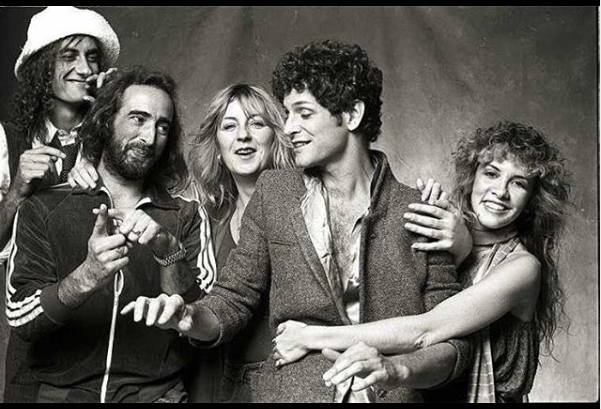This list is not about bad albums by rock legends, but a list of albums that you wouldn’t want to listen to if you’re only listening to these legendary bands/artists for the first time. Here are the 10 Unfit Albums To Represent Rock Legends:
Their Satanic Majesties Request – The Rolling Stones
Stones and Beatles. Beatles and Stones. The eternal debate that every lover of the sixties poses with the perpetual unknown of who is better, superior, or whatever you want to call them. The album was produced by themselves after the departure of Andrew L. Oldham, “Their Satanic Majesties Request” was the Rolling Stones’ particular attempt to emulate “Sgt. Pepper’s ”by the Beatles. The negative of the experiment is that they did not approach the level of the Liverpool masterpiece, instead of appreciating the confusion that the group was going through at that time, specifically in minor works such as the “Sing This All Together (See What Happens ) ”,“ Gomper ”(with obvious oriental aromas) or“ The Lantern ”.
Pilgrim – Eric Clapton
A weird thing about Clapton’s success in the 90s, he turned to cover classics. I do not record new material from Journeyman ’89 to this Pilgrim ’98. In that decade between those two albums, he had two hits – his moving elegy for his son’s death “Tears In Heaven” and Babyface’s skillful soul song “Change the World ”. And with Pilgrim trying to reach a middle ground between these two extremes, balancing between tortured lyrics and soft-looking sounds, Clapton has created a very calm recording that showcases stormy songs.
Yellow Submarine – The Beatles
More than a Beatles LP, “Yellow Submarine” is the soundtrack of the animated film that George Dunning performed on the famous children’s song written by Paul McCarney. The album is quite dispensable except for the appearance of John Lennon’s fantastic rock song, “Hey Bulldog”, an intense cut of penetrating psychedelic aromas and cryptic text.
The Ghost of Tom Joad – Bruce Springsteen
In the winter of 1995, Bruce Springsteen recovered the acoustic style that he had already used in Nebraska thirteen years before and distilled it again in The Ghost of Tom Joad, one of his most personal works. To compose this album, The Boss was inspired by The Grapes of Warth, the novel written by John Steinbeck in 1939 and that a year later John Ford would take to the cinema.
The Final Cut – Pink Floyd
At this point in their career, Pink Floyd had already died of success and egos, and The Wall was what the title of the album itself means, a wall, a wall from which the band would not recover later and, what’s more, a slow agony that would end shortly after the departure of Roger Waters. In 1983 we received The Final Cut and Pink Floyd gave us another concept album, a supposed rock opera that they would never perform live and that many labeled an inferior album, although with the perspective of the years it seems to be the last tail of a Roger Waters who had already mentally started his solo journey a long time ago.
Self Portrait – Bob Dylan
After Blonde On Blonde, it is Dylan’s second double album. It mostly contains covers of popular country and folk songs, as well as new compositions, instrumental themes and songs live with The Band. Dylan sings almost all of the songs with the same tone of voice as in the Nashville Skyline. It is also like a definitive manga cut to all the compulsive “freaks” who harassed him incessantly, both psychically and persistently.
Full Circle – The Doors
If Other Voices magically surprised us when it was released, Full Circlesmells is a bit more of a hangover. In itself, the album is not bad. It is even quite good. The Doors still had a little under the hood. Except that after the high level and the homogeneity of the previous record, Full Circle hesitates between good songs. Thus ended the career of The Doors. Second and last album of the group without Jim Morrison, the remaining members finally separate from the aura of their singer.
Face Dances – The Who
Worse and worse … When we listen to Face Dances we realize that the Who had little life left. They no longer have the originality, energy, youth, or freshness that they had before. They didn’t even have his heart: Keith Moon …After the death of the drummer, former Small Faces Kenney Jones would take his place. Apparently, it would be a good replacement to continue prolonging the Who’s live performances. But compositionally the band was not at its best, this is evidenced in Face Dances.
https://www.youtube.com/watch?v=qA1OHwqalrY
Future Games – Fleetwood Mac
In “Future Games” (1971), an album in which Christine McVie expanded her role in the group. The sound varied profoundly, incorporating elements of folk-rock, soft-rock, and pop. The album received a cold reception from critics and the public.
Trans – Neil Young
Not even the great Neil Young could escape the musical mediocrity that, broadly speaking since there were always relieving exceptions, invaded the eighties. The Canadian disoriented his fans with the edition of the futuristic Trans for the end of 1982, as a kind of end-of-the-year gift of those that nobody wants to receive Neil, wanted to follow the path of Kraftwerk and orient himself towards futuristic music but with deplorable results, that despite everything they have an explanation that will be explained in the later lines.

